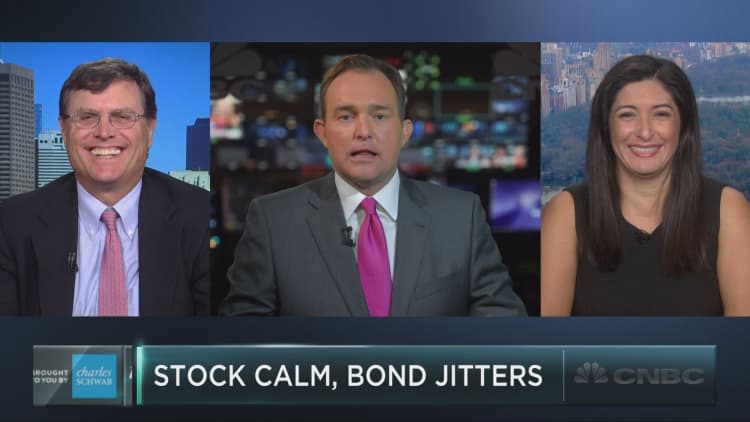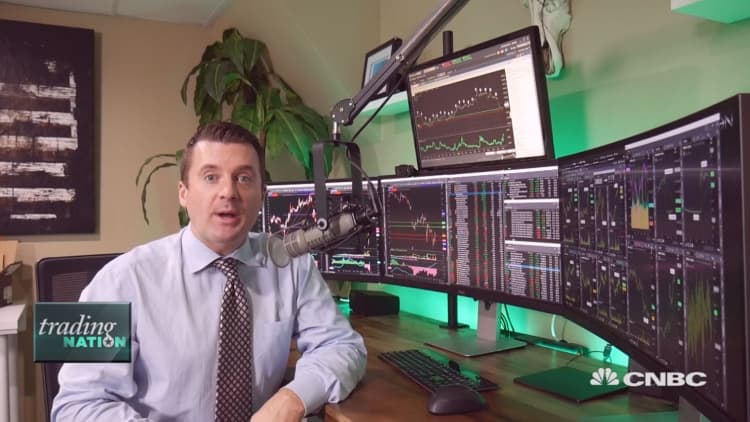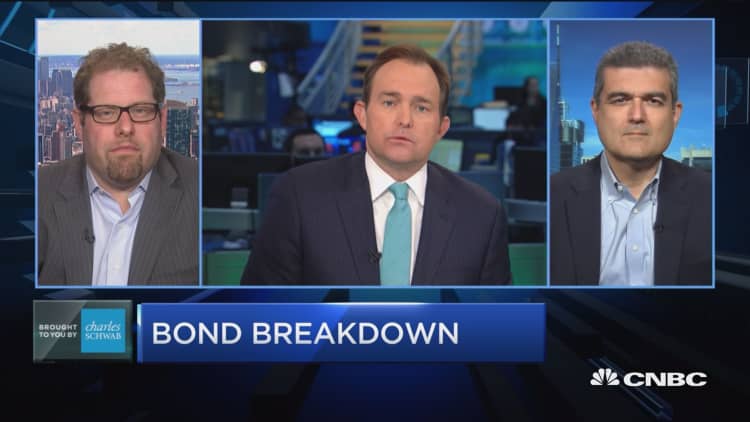


As stocks jumped following Donald Trump's electoral win, equity anxiety has fallen precipitously.
Contrary to predictions that a Trump win would lead to a jump in volatility, the CBOE Volatility Index, which measures the size of expected moves and more generally the level of nervousness around stocks, has slid significantly.
Meanwhile, the bond market has gone into panic mode. Bond prices have tanked, seemingly due to expectations that Trump's policies will lead to a rise in economic growth and thus in inflation. And with bond prices dropping, expected volatility in the bond market has surged.
"Fixed income markets and equity markets are following completely different narratives after the election," Deutsche Bank chief international economist Torsten Slok said in a note Wednesday.
"Rates markets are focusing on higher inflation and what it means for rates across the curve, including the risk of the Fed falling behind the curve," or failing to adjust policy quickly enough to stay apace with inflation. "Equity markets, on the other hand, are focusing on higher GDP growth, and equity markets don't seem to worry about the risks of an overshoot of inflation and the Fed falling behind the curve."
The disparate levels of unease has opened up a "huge gap between rates volatility and equity volatility," Slok wrote.
As proof, he furnishes a chart comparing the VIX to the Merrill Lynch Option Volatility Estimate (or MOVE) index, which measures volatility expectations in the Treasury bond market.
So which asset class is getting it right?
For Matt Maley, equity strategist at Miller Tabak, "they're both getting it wrong."
Wednesday on CNBC's "Trading Nation," Maley said that sentiment around bonds has become far too bearish, at least in the short term. On the other hand, rising yields have a lot of negative ramifications for stocks, including rising costs for leverage and dividend payers becoming less attractive in comparison.
In other words, bond investors may be too panicky, and stock investors too sanguine.






